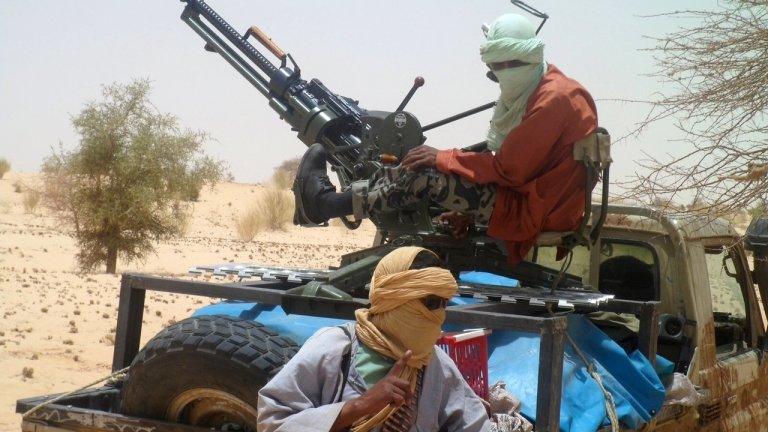Profile: Al-Murabitoun
- Published
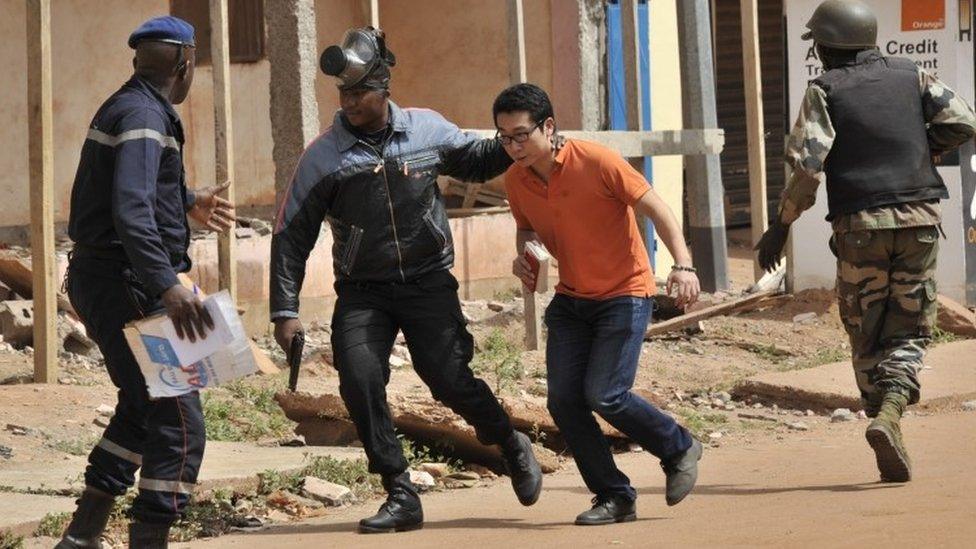
Malian security forces evacuated hostages from the hotel in Bamako
A jihadist group formed about three years ago has said it was behind two attacks on hotels in West Africa in two months.
The group, which calls itself al-Murabitoun, is based in the Sahara desert in northern Mali and contains fighters loyal to the veteran Algerian militant, Mokhtar Belmokhtar.
In November 2015, it said it was behind the hostage-taking at the Radisson Blu hotel in the Malian capital, Bamako.
A statement reported by Mauritania's al-Akhbar news agency said the attack had been carried out jointly with al-Qaeda in the Islamic Maghreb (AQIM).
Then, in January 2016, a statement issued by AQIM said al-Murabitoun was behind a deadly raid on the Splendid Hotel in the capital of Burkina Faso, Ouagadougou.
Belmokhtar, a one-eyed commander who fought Soviet forces in Afghanistan in the 1980s, was formerly a senior figure in AQIM. But he left in late 2012 after falling out with its leaders.
Shortly afterwards, in January 2013, he achieved international notoriety for ordering an attack on the In Amenas gas plant in Algeria.
Gunmen under his command took numerous hostages and by the time Algerian forces regained control of the plant three days later, 40 staff (and 29 militants) had been killed.
Later that year he took his men - an unknown number of Touaregs, Arabs and some others by then called the Masked Men Brigade - into a new group called al-Murabitoun.
The statements announcing joint operations with AQIM cannot be verified by the BBC. If true, they suggest there may have been a rapprochement between Belmokhtar and rival militant leaders in the Sahara, home to a myriad different armed groups with shifting allegiances.
No leader announced
Although Belmokhtar had been the one to announce the establishment of al-Murabitoun, it was not immediately clear if he was its leader.
Belmokhtar had called for other jihadists to pick up the reins of leadership - the new group was formed in a merger with another group known as the Movement for Oneness and Jihad in West Africa (Mujao).
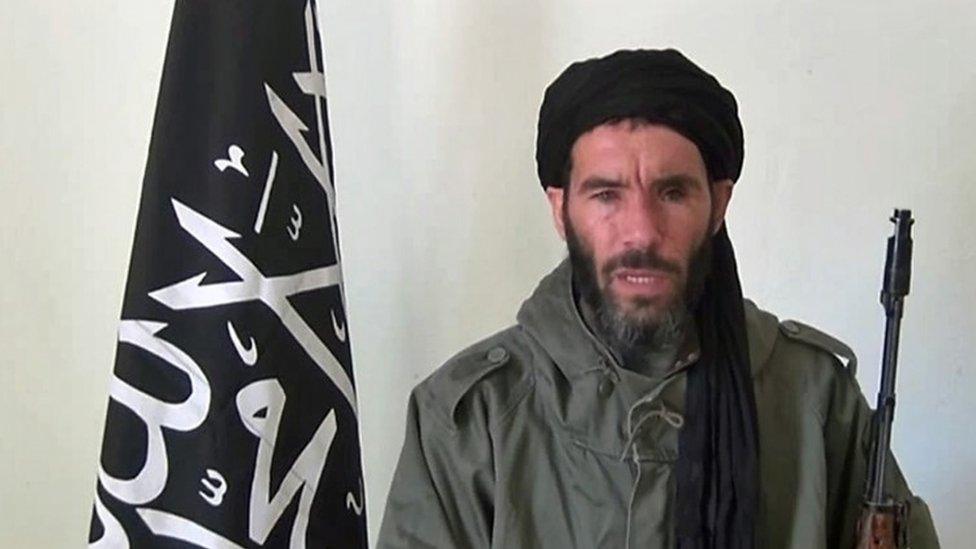
Mokhtar Belmokhtar fell out and split with AQIM leaders
That group was led by a Mauritanian ethnic Touareg, Ahmed Ould Amer, who used the nom de guerre Ahmed Telmissi or Tilemsi.
No leader's name was given in al-Murabitoun's founding statement and the French authorities later identified the group's leader as a third man, Abu Bakr al-Nasri, said to be an Egyptian.
He was reportedly killed, external by French forces in Mali in April 2014, as was Tilemsi, external later that year.
Reports said that Belmokhtar had assumed the group's leadership.
A statement announcing this, which the BBC has not verified, appeared to make a connection between al-Murabitoun and al-Qaeda.
Rejecting IS
That reported affiliation was briefly thrown into question several months ago when a Mujao spokesman was said to have sworn allegiance to the leader of the so-called Islamic State (IS), adding that he spoke for al-Murabitoun.
A statement attributed to Belmokhtar rejected this and reaffirmed allegiance to al-Qaeda leader Ayman al-Zawahiri. The BBC cannot independently confirm the authenticity of either statement.
Since then, al-Murabitoun has said it was behind an attack on a hotel in the central Malian city of Sevare in August 2015, in which at least 19 people were killed.
It has also said its men carried out an attack in Bamako in March 2015 when five people were killed in a restaurant.
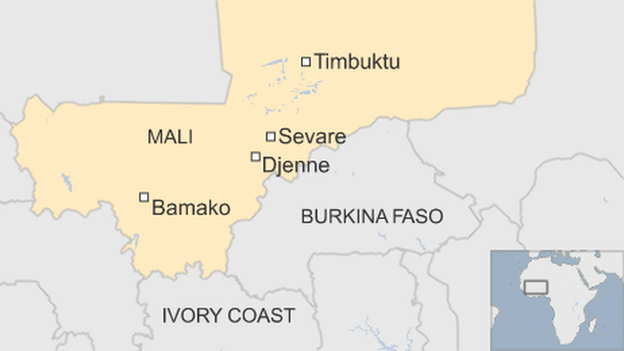
BBC security correspondent Frank Gardner says that although the geographical locations and immediate agendas of the region's jihadist groups may vary, they all share the same murderous ideology and seek to overthrow the legitimate governments of their countries.
Our correspondent says they want to establish an Islamic caliphate that imposes such a strict and joyless interpretation of Islam that it is shared by almost none of the population.
Al-Murabitoun has not commented on the Paris attacks and so far there has been no suggestion of any direct link with events in Bamako.
However, given France's involvement in battling Islamist militant groups in Mali in recent years and the two countries' historic ties, one cannot rule out the idea that the attack in Mali may have been inspired by events in France.

More on Mali:
- Published20 November 2015
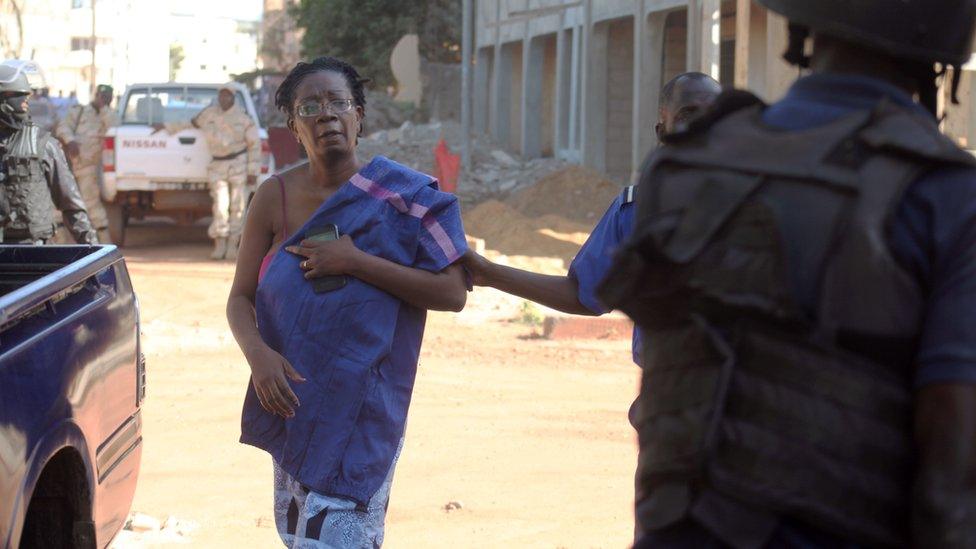
- Published15 June 2015
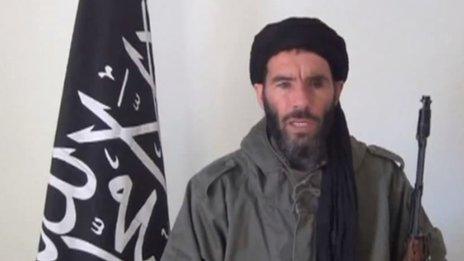
- Published20 November 2015
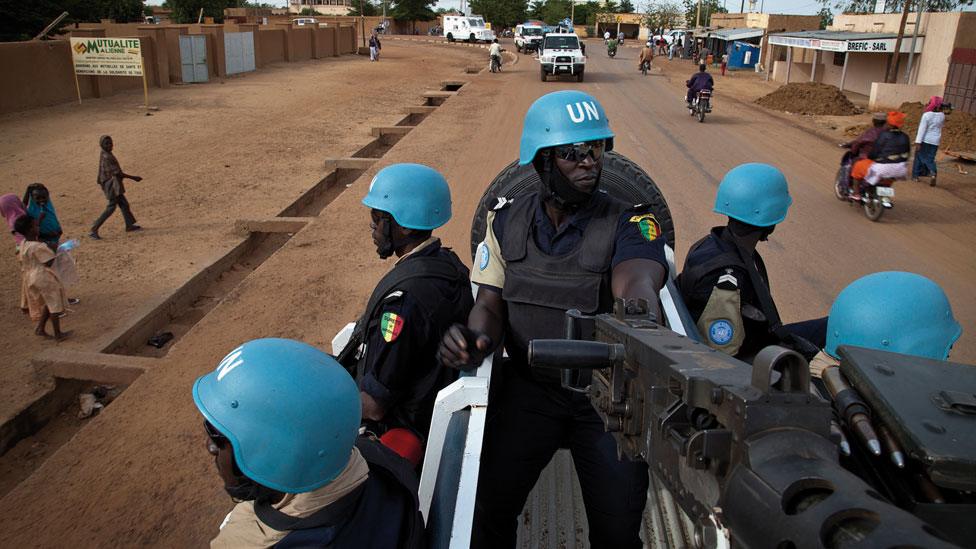
- Published17 July 2012
